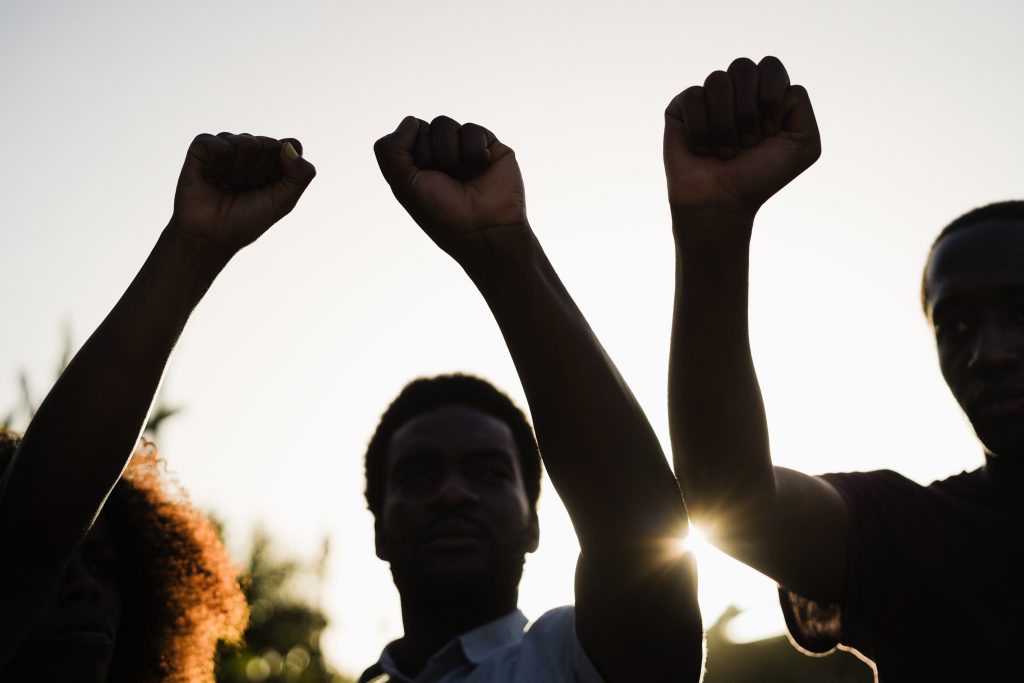
In 2021, Voqal took more steps in its journey towards becoming an organization more aligned with our vision of a socially equitable society. We continue to realize that just having a mission isn’t enough, but that living that mission in every aspect of our work is key to realizing our goals. Earlier this month, we released our 2021 Annual Report, which gives a glimpse into this work. Below we highlight one article from the report focused on how the organizations we work with are helping us get one step closer to our North Star.
The events of the past couple years highlight that a lack of racial equity is at the core of many of the issues that hold us back from creating the world we envision. While we have a long way to go, over the past year we have begun to direct more resources to innovative approaches and solutions to the problem of racial injustice in our society.
One example of this is our recent investment in efforts in the Twin Cities to create a holistic ecosystem to realize racial justice. The Philanthropic Collective to Combat Anti-Blackness and Realize Racial Justice — a Black-led initiative formed in response to the killing of George Floyd — engages a collective of philanthropic and community partners to effect long-term systems and community change in Minnesota. The Collective is committed to “centering Black voices, knowledge, and activism” in its pursuit of racial justice and serving as an organization that holds the philanthropic field accountable to advancing racial justice. We believe strongly in the Collective’s vision, which includes sustaining and growing the capacity of Black leaders and organizations.
The most recent Voqal Fellowship cohort reflects our belief that addressing these issues requires innovative solutions from the individuals who are grounded in these communities and often get ignored by traditional funders. Individuals like Shani Smith, a Non Violent Direct Action trainer living in Chicago, who created the Black Cornerstones Project. This project recognizes that working directly with individuals in the community affected by racial inequity is central to eradicating racial oppression and strengthening civic engagement in Black communities on Chicago’s South Side and West Side. In light of this reality, Black Cornerstones Project creates bold and extraordinary spaces where individuals can connect to better understand and engage with the policies and other factors behind this oppression and work towards creating a brighter future for their communities together.
Even telecommunications policy, an area that often seems disconnected from the larger fight for social and racial equity, needs to be better grounded in the communities it affects. It’s why we’ve joined efforts at both the national and state level to address phone justice for incarcerated individuals. It is vital that the practice of charging an exorbitant amount of money to incarcerated individuals for the basic ability to stay connected to family be stopped. It is a predatory practice that leaves 1 in 3 families in debt due to the cost of calls and visits, and it disproportionately affects women, largely women of color.
While community has always been part of our work, as we look towards the future it is clear now more than ever, that it should be central in everything we do. It’s why Voqal’s Education Opportunity project supports organizations like the HadaNõu Collective. This innovative organization recognizes that creating a truly equitable education system must be grounded in work that is humane, liberatory, community-driven, and sustainable. The HadaNõu Collective works directly with, not for, the community and has helped launch an innovative community high school where students can personalize their educational experiences with an eye towards addressing local and global community needs.
In addition, while Mobile Citizen has always been focused on creating greater equity through internet access, we recognize equity isn’t just about access to the internet but is also about using that access to create power in the communities and organizations most impacted by inequity. It’s why Mobile Citizen has focused on providing low-cost internet to organizations like the LGBT Community Network, an organization working in California that provides support and essential resources that enrich the well-being of the lesbian, gay, bisexual, and transgender communities. Those essential resources include equipping low-income families with Mobile Citizen’s Wi-Fi hotspots and high-speed internet for remote learning during the COVID-19 pandemic.
While we’ve taken initial steps towards better aligning our programmatic work with our commitment to letting those “closest to the pain” lead the work in their communities, it is clear we have a ways to go. Whatever the future brings, one thing is clear, the path towards our North Star lies in the work of the individuals and communities working every day to build power and create a society that ensures everyone can live in an equitable, just, and liberated world.
You can view this year’s full Voqal annual report at annualreport2021.voqal.org.